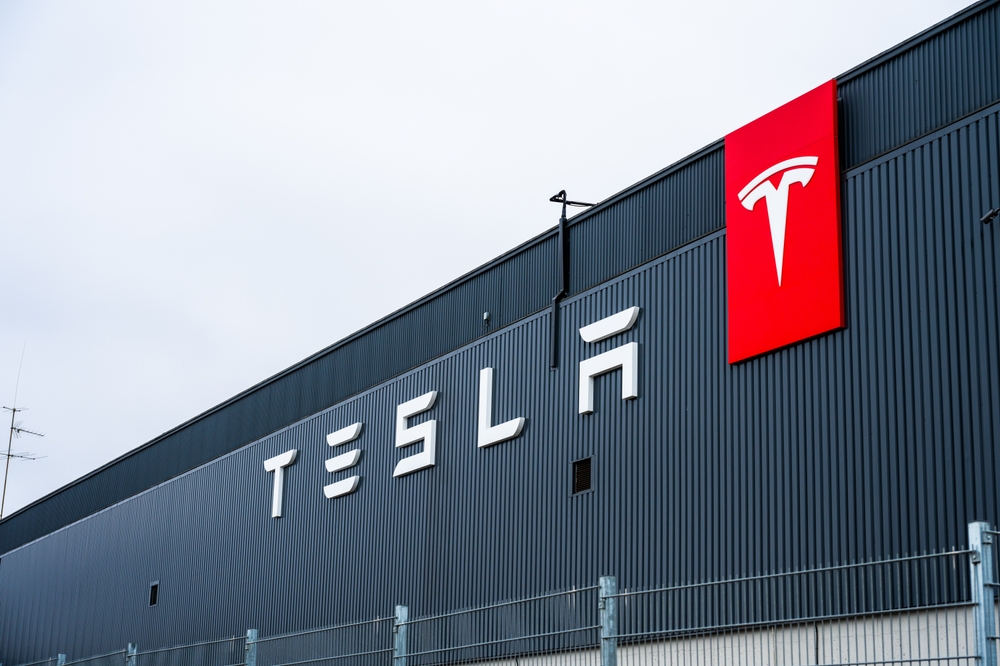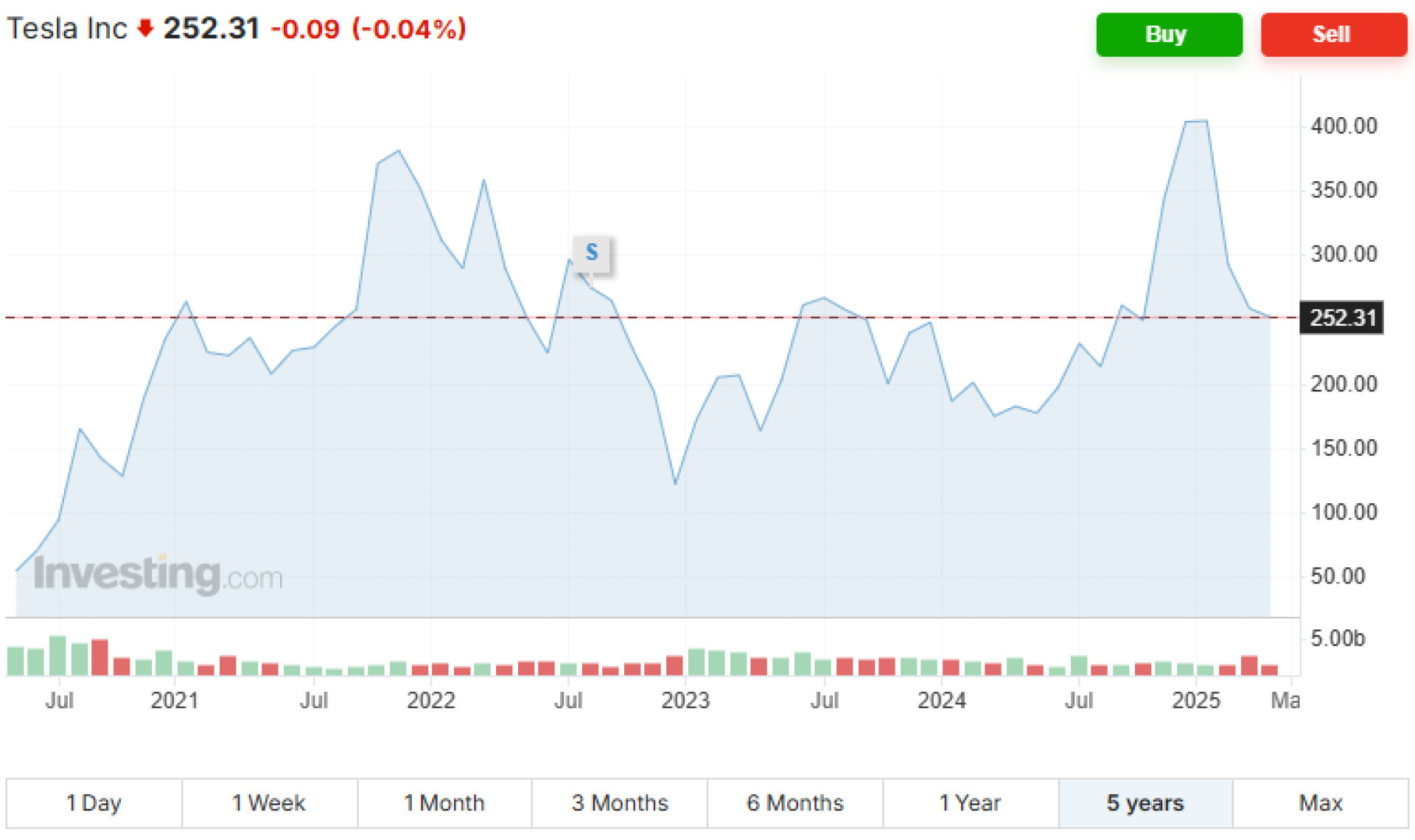The conservative Kingdom of Saudi Arabia, best known for its vast oil reserves, is attempting a shift and opening its doors to sustainable solutions, including electric vehicles (EVs). American company Tesla has entered a relatively young and small market, where EV sales make up only a tiny slice of the pie — and already face known competition. Will it manage to replicate the success it saw in neighbouring United Arab Emirates and jumpstart its sales?
Tesla in the Land of Oil
The automaker has expanded its portfolio to Saudi Arabia, where on April 10, 2025, it opened its first showroom. The company debuted in Riyadh and followed up the next day with store openings in Jeddah and Dammam. Tesla entered a relatively untapped market, where EV sales last year made up only about 1% of total vehicle sales, according to a PwC survey. Despite this, strong competitors are already present, such as Lucid Motors — in which Saudi Arabia’s sovereign wealth fund, the Public Investment Fund, holds a majority stake — and Chinese giant BYD. Moreover, the kingdom itself plans to launch its own brand, Ceer Motors, next year, which will further intensify competition. S&P Global Mobility expects Tesla could sell up to 15,000 vehicles in the country over the next two years. A positive sign for Tesla is the enthusiasm of locals for its arrival, which is supported by last year’s PwC data showing a growing interest in EVs — with more than 40% of Saudis considering purchasing one. Through sustainability investments, Saudi Arabia aims to reduce its dependence on the oil industry. The Vision 2030 project includes a goal for 30% of vehicles in Riyadh to be electric.
Sales Have Collapsed
The kingdom's potential for further developing electric mobility could help the American company increase sales, which in the first three months of 2025 fell at the fastest pace in its history. According to the latest report, sales dropped by 13% year-on-year to 336,681 vehicles. According to the European Automobile Manufacturers Association, the drop in Europe was even 49%. Tesla attributed this situation to halting the production of the Model Y, but a more likely factor was the shift of customers towards cheaper alternatives, which plays into the hands of already strong global competitors. For example, in China, local manufacturer BYD's sales outperformed Tesla’s again, with a robust 39% increase in the same quarter. Tesla's troubles are also compounded by controversies surrounding its CEO, Elon Musk, and his collaboration with President Donald Trump, which even led to incidents where people damaged Tesla cars and charging stations.
Charging Challenges
Although the expansion into Saudi Arabia represents a strategic move, the company will also have to deal with a less developed EV infrastructure. The current number of charging stations is insufficient, with only about 101 stations across the kingdom. For example, on the key transportation corridor connecting Riyadh and Mecca, which spans 900 kilometres, there is not a single charging station. By comparison, according to Statista, the United Arab Emirates has over 260 such locations. This situation is likely to change in the coming years, as the Vision 2030 plan includes the construction of around 5,000 charging stations. A further challenge are the high temperatures, which significantly reduce the efficiency of electric batteries.
Stocks in a Loss of Tens of Percent
The expansion into another market comes at a time when Tesla is experiencing a turbulent period in the investment market. Since 2022, its stock has been at lower levels, with periods of significant corrections that ended in November of last year, when the new U.S. president was elected. Even then, Musk's affinity for Donald Trump was evident, and investors expected that a Trump victory in the election would bring advantages for the manufacturer. This led to a historic peak on December 17, 2024, at $479. However, since that milestone, the stock has lost more than 47% of its value, dropping to $252 on April 14, 2025. In the long run, its performance is more positive. Over the last year, Tesla's stock price has risen by 47%, and over the last 5 years, it has increased by 358%.*
Tesla Stock Price Development Over the Last 5 Years (Source: Investing.com)*
Conclusion
Entry into the Saudi Arabian market, with increasing investments and growing interest in EVs, has the potential to help Tesla amid declining sales and rising competition. However, the journey will not be entirely smooth, as there are challenges in a country surrounded by desert. If Tesla manages to fulfill its potential and capitalize on the growing interest and enthusiasm for electric vehicles, Saudi Arabia could become a lifeline during the brand's declining glory days, thus creating space for further growth. [1]
* Past performance is not indicative of future results.
[1] Forward-looking statements are based on assumptions and current expectations, which may be inaccurate or subject to changes in the current economic environment. Such statements are not a guarantee of future performance. They involve risks and other uncertainties that are difficult to predict. Results may differ materially from those expressed or implied in any forward-looking statements.
Sources:
https://apnews.com/article/tesla-sales-recall-trump-byd-b6f5da15be491d16e3020598e3ddf861
https://edition.cnn.com/2025/04/02/business/tesla-sales/index.html
https://www.cnbc.com/2025/04/10/tesla-launches-sales-in-saudi-arabia-amid-chinese-competition.html



